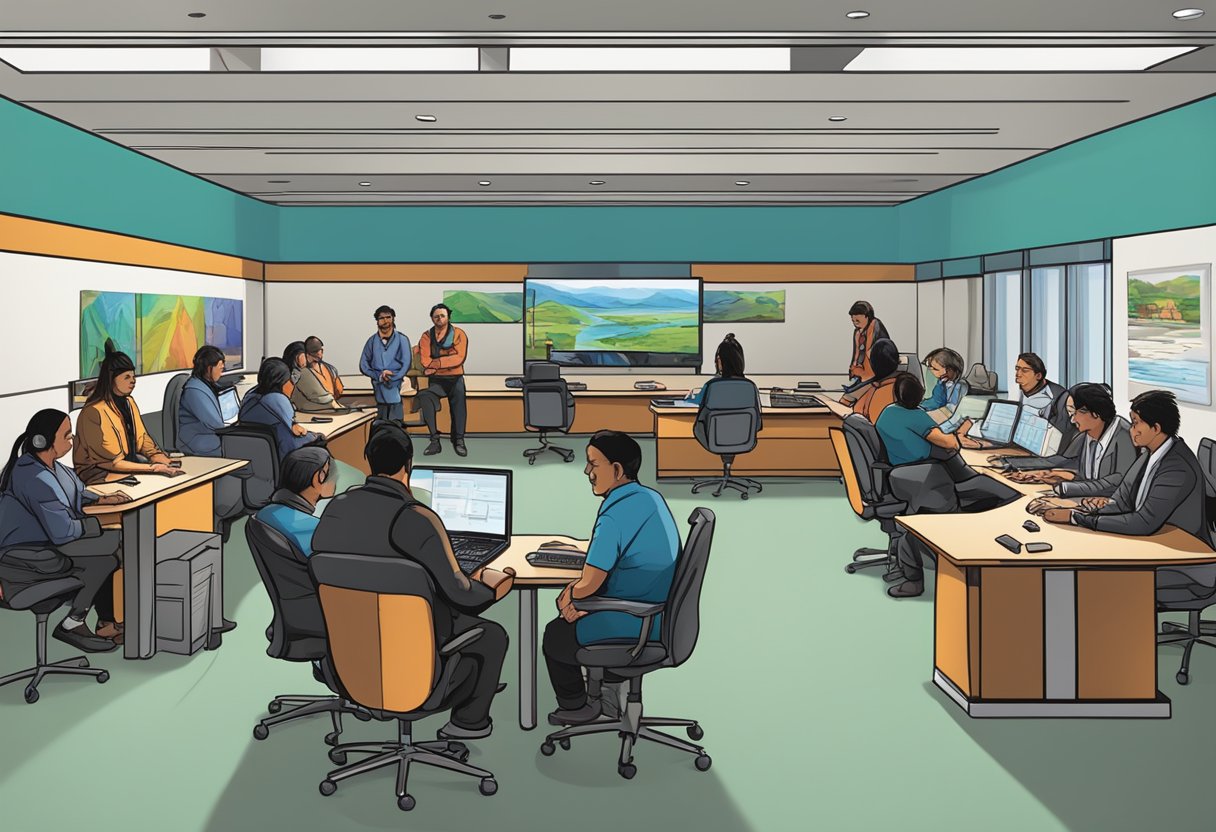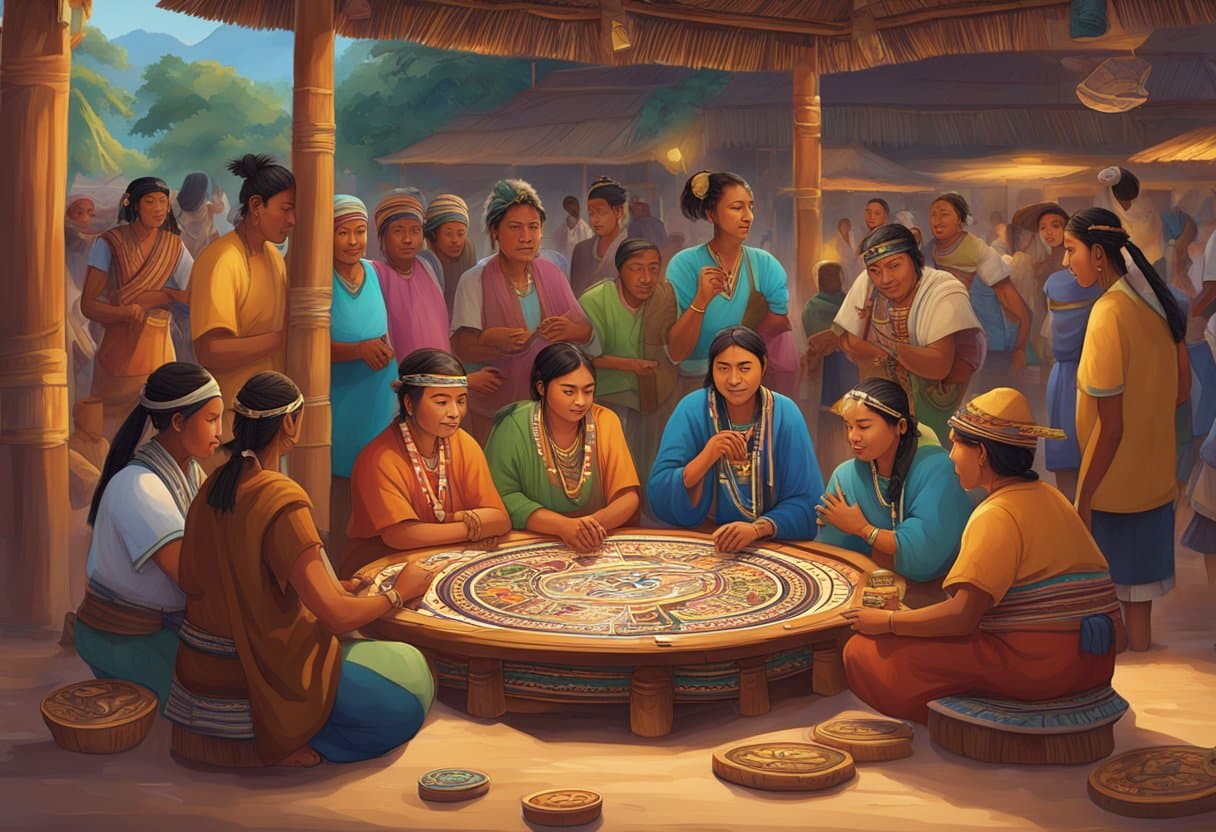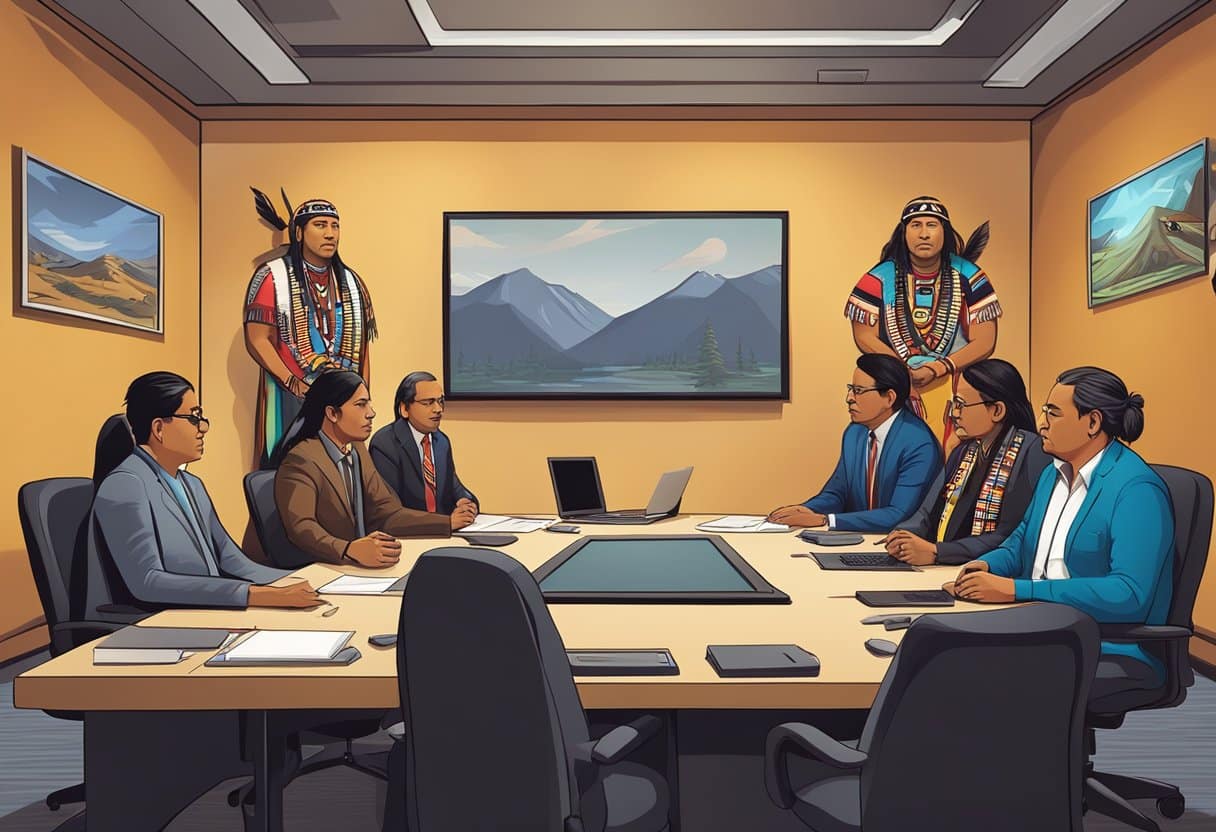The Canadian gaming landscape is changing rapidly as First Nations communities seek greater involvement in the industry. Bill S-268 represents a potentially significant shift in how Indigenous gaming rights are recognized and regulated across the country. These regulatory changes could reshape the entire Canadian gaming market, affecting both First Nations revenue streams and their economic sovereignty.

First Nations gaming operations have become vital economic drivers for many Indigenous communities. They provide essential employment opportunities and generate revenue that supports community development programs. However, the introduction of new markets like Ontario’s iGaming platform threatens to divert funds away from existing First Nations casinos and gaming facilities.
For decades, First Nations communities have worked to establish gaming codes and agreements that define their authority over gaming activities. These frameworks have allowed some First Nations to develop successful gaming operations while ensuring regulatory compliance. As Canada considers new gaming legislation, the balance between provincial control and Indigenous rights remains at the centre of ongoing discussions about the future of this important industry.
Historical Context of Gaming Among Indigenous Peoples

Gaming activities have deep roots in Indigenous cultures across Canada, long before the establishment of commercial casinos. These practices evolved significantly as Canada developed its legal framework for gambling.
Role of Gaming in Indigenous Cultures
Traditional games of chance and skill played important cultural and social roles in many Indigenous communities. These activities weren’t merely for entertainment but served ceremonial purposes and taught important values.
Games like the Dish Game (a dice-like activity using small bones) and hand games helped strengthen community bonds. They were often played during gatherings and ceremonies, fostering social connections while teaching strategy and patience.
Gaming also had spiritual significance in many communities. Some games were played during specific seasons or ceremonies to bring good fortune, healing, or to mark important life events.
Unlike modern commercial gambling, traditional Indigenous gaming emphasized collective participation rather than individual gain. Winnings might be redistributed or used for community needs.
Evolution of Gaming Laws in Canada
Canada’s approach to gambling regulation has changed dramatically over the decades. Before the 1969 amendments to the Criminal Code, most gambling activities were prohibited nationwide.
The 1969 changes allowed provincial governments to run lotteries and other gaming operations. However, these amendments didn’t specifically address First Nations’ rights to operate gaming facilities on their territories.
By the 1980s, some First Nations communities began establishing gaming operations, citing sovereignty rights. Unlike the United States, Canada didn’t recognize an inherent right for Indigenous peoples to operate gaming facilities.
The regulatory framework developed unevenly across provinces. Some created agreements with First Nations while others resisted Indigenous participation in the gaming industry.
This uneven approach has led to tensions and legal disputes. The Truth and Reconciliation Commission later highlighted economic self-determination, including gaming rights, as an important aspect of reconciliation efforts.
Overview of Gaming Operations in First Nations

First Nations gaming operations in Canada have evolved substantially over the past three decades, creating significant economic opportunities through both physical facilities and online ventures while providing crucial funding for community development.
Physical Facilities and Online Platforms
First Nations gaming in Canada currently includes sixteen for-profit casinos spread across multiple provinces. British Columbia hosts several prominent First Nations-owned gaming facilities, with similar operations in provinces like Ontario, Manitoba, and Saskatchewan. These casinos range from small-scale facilities to large resort-style destinations.
Many facilities offer traditional casino games including slot machines, table games, and poker rooms. Some locations have expanded to include entertainment venues, restaurants, and hotels to create comprehensive destination experiences.
Online gambling represents a growing segment of First Nations gaming operations. Several communities have explored digital platforms to expand their market reach beyond geographical limitations.
Unlike in the United States, First Nations in Canada do not have a recognized right to participate in the gaming industry. Instead, their participation stems from commercial agreements and province-specific regulatory frameworks.
Economic Benefits and Community Development
First Nations gaming operations generate substantial revenue that directly supports indigenous communities. Profits are typically managed through Community Development Corporations that allocate funds to essential services and infrastructure projects.
Gaming facilities create well-paying jobs for community members, addressing unemployment challenges in many First Nations communities. These positions range from entry-level to management roles, providing valuable career development opportunities.
Revenue from gaming operations helps fund healthcare initiatives, educational programs, and elder care services. Communities often invest in cultural preservation efforts, language programs, and youth activities.
Gaming profits also support long-term economic development by funding business startups, workforce training, and tourism initiatives. This creates a diversified economic base beyond gaming.
The industry contributes to sustainable development through environmentally conscious facility design and operational practices that balance economic growth with cultural values and environmental stewardship.
Regulatory Framework and Legal Changes

Canada’s gaming landscape for First Nations communities is shaped by a complex web of federal and provincial laws. The regulatory environment continues to evolve with significant changes affecting Indigenous gaming rights and operations across the country.
Provincial and Federal Jurisdiction
Gaming regulation in Canada operates under a divided authority system. The federal government maintains control through the Criminal Code of Canada, which broadly prohibits gaming activities except for specific exemptions.
Provinces and territories hold authority to license and regulate legal gaming within their boundaries. This creates a patchwork of different regulatory approaches across Canada.
Each province has established gaming authorities like the Ontario Lottery and Gaming Corporation or the British Columbia Lottery Corporation that oversee gaming operations. First Nations communities often work within this provincial framework, though they may assert sovereignty claims for independent gaming regulation.
The Canadian Gaming Association serves as an industry voice, providing insight on regulatory developments affecting both commercial and First Nations gaming operations.
The Impact of Criminal Code Amendments
Recent Criminal Code amendments have significantly reshaped Canada’s gaming landscape, particularly for First Nations communities. The most notable change came in 2021 when Bill C-218 legalized single-event sport betting, ending a decades-old prohibition.
This amendment created new economic opportunities for First Nations gaming operations. Previously, only parlay betting (wagering on multiple events) was permitted, limiting market potential.
Criminal Code Section 207 remains crucial as it outlines who may conduct and manage gaming activities in Canada. While it grants provinces primary authority, it also creates pathways for First Nations to negotiate gaming agreements.
These amendments reflect a gradual shift toward recognizing greater autonomy for First Nations in gaming management, though challenges remain in establishing consistent rights across provincial boundaries.
Legislative Changes Since August 27, 2021
Since August 2021, Canada has seen significant legislative developments affecting First Nations gaming. Bill S-268 represents a potential watershed moment, proposing to empower First Nations with exclusive rights to manage lottery schemes on reserves.
Ontario pioneered change by launching a regulated online gaming market in April 2022, creating new opportunities for First Nations partnerships and revenue sharing in the digital space. Several First Nations have already entered this market through various agreements.
In other provinces, legislative frameworks continue to evolve at different rates:
- British Columbia has expanded consultation requirements with First Nations for gaming projects
- Alberta has strengthened revenue-sharing models for on-reserve casinos
- Saskatchewan signed an historic agreement giving SIGA (Saskatchewan Indian Gaming Authority) exclusive rights to operate online gaming
These changes reflect a growing recognition of First Nations’ rights to participate in and benefit from gaming revenue within a regulated environment.
Economic Reconciliation and Indigenous Participation
Economic reconciliation involves creating pathways for Indigenous communities to participate meaningfully in Canada’s economy, including the growing gaming sector. First Nations are seeking greater inclusion in gaming revenue streams to support self-determination and community development.
Partnerships with Financial Institutions
Cedar Leaf Capital has emerged as a key investment dealer working with First Nations to access capital for gaming ventures. They specialize in structuring deals that respect Indigenous governance while meeting regulatory requirements of provincial gaming authorities.
Several major banks have created Indigenous banking divisions to facilitate these partnerships. These specialized units offer customized financing options that acknowledge the unique legal status of reserve lands and First Nations governance structures.
In Alberta, financial institutions are partnering with Indigenous communities as part of the province’s iGaming strategy. This approach aims to promote responsible gaming while ensuring revenue benefits both provincial and Indigenous stakeholders.
These partnerships help overcome historical barriers that have limited Indigenous access to capital markets and commercial lending.
Investment in Indigenous Communities
Gaming revenue creates substantial economic impact when reinvested in First Nations communities. Many Nations establish Community Development Corporations to manage these investments strategically.
Statistics show that for every dollar generated through gaming partnerships:
- 40% typically funds essential services
- 25% supports cultural programs
- 20% develops infrastructure
- 15% creates education and training opportunities
Research indicates that Indigenous-led gaming initiatives create 3-5 times more employment for community members compared to non-Indigenous gaming operations. These jobs often include training and advancement opportunities.
However, regulatory barriers and bureaucratic hurdles continue to limit full Indigenous participation. As one report notes, “Indigenous people are unable to access economic opportunities” due to these systemic challenges.
First Nations leaders advocate for regulatory changes that would increase benefit-sharing arrangements and create more direct participation in Canada’s gaming economy.
Challenges Within the Gaming Industry
The Canadian gaming industry faces two major hurdles that affect First Nations communities and the broader market: criminal infiltration and responsible gaming practices. These challenges have become more complex with the introduction of online gaming platforms.
Combating Organized Crime
Organized crime presents a significant threat to the integrity of gaming operations in Canada, particularly within First Nations territories. Criminal organizations often seek to infiltrate casinos and gaming establishments for money laundering purposes.
First Nations gaming regulators sometimes lack resources to implement sophisticated anti-money laundering protocols. According to search results, “If First Nations assumed full regulatory control over gaming activities, it is doubtful that all of them would have the necessary resources and experience.”
Provincial gaming authorities work with First Nations to strengthen security measures through:
- Joint task forces between tribal police and RCMP
- Financial monitoring systems to track suspicious transactions
- Background checks for gaming employees and vendors
This collaboration helps protect the legitimacy of First Nations gaming operations while ensuring criminal elements cannot exploit regulatory gaps.
Ensuring Responsible Gaming and Player Protection
The expansion of gaming options, especially with online platforms (iGaming), creates new challenges for responsible gambling and player protection. Many First Nations communities worry about increased gambling addiction in their territories.
Research indicates that online gaming might increase problem gambling rates without proper safeguards. In Ontario, First Nations have expressed concerns that “the introduction of iGaming will strip away revenue from casinos and thus the funds that our First Nation relies on to move forward.”
Responsible gaming initiatives include:
- Mandatory self-exclusion programs
- Limits on betting amounts and playing time
- Resources for gambling addiction treatment
- Age verification protocols
The challenge is balancing economic benefits with social responsibility. First Nations gaming operations must protect vulnerable players while generating necessary community revenue. Transparency in gaming operations remains essential for maintaining public trust and ensuring long-term sustainability.
Socio-Economic Impact on First Nations and Canada
First Nations gaming operations generate significant revenue that supports essential services in Indigenous communities. These funds directly impact healthcare and education systems through targeted investments.
Health Care
First Nations gaming revenues contribute substantially to healthcare improvements in Indigenous communities. Many First Nations allocate casino profits to build new medical facilities on reserves. This funding helps address healthcare gaps that federal programs don’t fully cover.
In some provinces, gaming revenues support addiction treatment centres specifically designed for Indigenous communities. These culturally appropriate services are crucial for addressing substance abuse issues.
Mental health services also receive funding from gaming operations. This is especially important as many communities struggle with higher-than-average rates of depression and trauma-related conditions.
Some First Nations have invested in elder care facilities using casino profits. These centres provide traditional healing alongside modern medical services.
Education
Gaming revenues fund important educational initiatives in First Nations communities across Canada. Many bands use casino profits to establish scholarship programs for Indigenous youth pursuing post-secondary education.
Some communities have built new schools on reserves using gaming income. These schools often incorporate traditional knowledge and language instruction alongside provincial curriculum.
Adult education receives significant support from gaming profits. Programs focusing on job training and skills development help improve employment rates in communities.
Cultural education initiatives, including language revitalization projects, benefit from casino funding. These programs help preserve Indigenous traditions that were threatened by past government policies.
Several First Nations also fund off-reserve educational support systems to help students transitioning to urban institutions.
The Future of First Nations Gaming
First Nations gaming in Canada stands at a pivotal moment with Bill S-268 potentially granting exclusive rights to manage lottery schemes on reserves. The industry faces transformation through technology and cross-border opportunities.
Technological Advancements and Online Casinos
First Nations communities are increasingly exploring digital gaming platforms to expand their reach. The growth of iGaming presents both challenges and opportunities for Indigenous operators.
Online casinos could help First Nations reach new markets beyond physical locations, though research suggests these platforms may divert revenue from traditional casinos. This is particularly concerning for communities that rely on gaming income for economic development.
Several First Nations are investing in mobile apps and digital infrastructure to compete in the online space. These technologies allow for more immersive experiences while reducing operating costs.
Some communities are also exploring blockchain technology and cryptocurrency options to enhance security and attract tech-savvy players. These innovations may help First Nations gaming operations remain competitive as provincial markets evolve.
Cross-Border Gambling and International Partnerships
First Nations near the Canada-U.S. border have unique opportunities to develop cross-border gaming relationships. These partnerships could increase tourism and create economic synergies between Indigenous communities in both countries.
International gaming corporations have shown interest in partnering with First Nations operations to enter the Canadian market. These arrangements can bring capital investment and management expertise while maintaining Indigenous control over gaming revenues.
The tourism industry represents a significant growth sector for First Nations gaming. Casino resorts with cultural elements attract international visitors seeking authentic experiences while supporting local economies.
Provincial and territorial partners remain essential stakeholders in First Nations gaming expansion. Negotiating fair revenue-sharing agreements with these governments will continue to shape the industry’s development across Canada.
Governance and Accountability in First Nations Gaming
First Nations gaming operations in Canada operate under specific governance structures that ensure proper oversight. These frameworks typically involve tribal councils, provincial regulators, and sometimes federal authorities working together to maintain standards.
Gaming codes developed by First Nations define their authority over different gaming activities on their lands. These codes establish clear rules for operations while respecting Indigenous sovereignty.
Key Accountability Measures:
- Regular financial audits
- Transparent revenue reporting
- Community consultation processes
- Compliance with provincial regulations
First Nations casinos must create a Safe and Regulated Environment for patrons. This includes security protocols, fair gaming practices, and adherence to provincial licensing requirements.
Responsible Gambling initiatives are mandatory in First Nations gaming establishments. These programs help identify problem gambling behaviours and provide resources for those needing assistance.
Annual reports are published by most First Nations gaming operations to demonstrate financial Accountability. These reports track revenue distribution, community investments, and employment statistics.
Provincial gaming authorities collaborate with First Nations to ensure regulatory compliance while respecting Indigenous rights to self-governance. This balancing act remains crucial to the success of the industry.
Bill S-268 may reshape this governance landscape by potentially granting First Nations more exclusive rights to manage lottery schemes on reserves. This could significantly alter accountability structures in Canadian Indigenous gaming.





